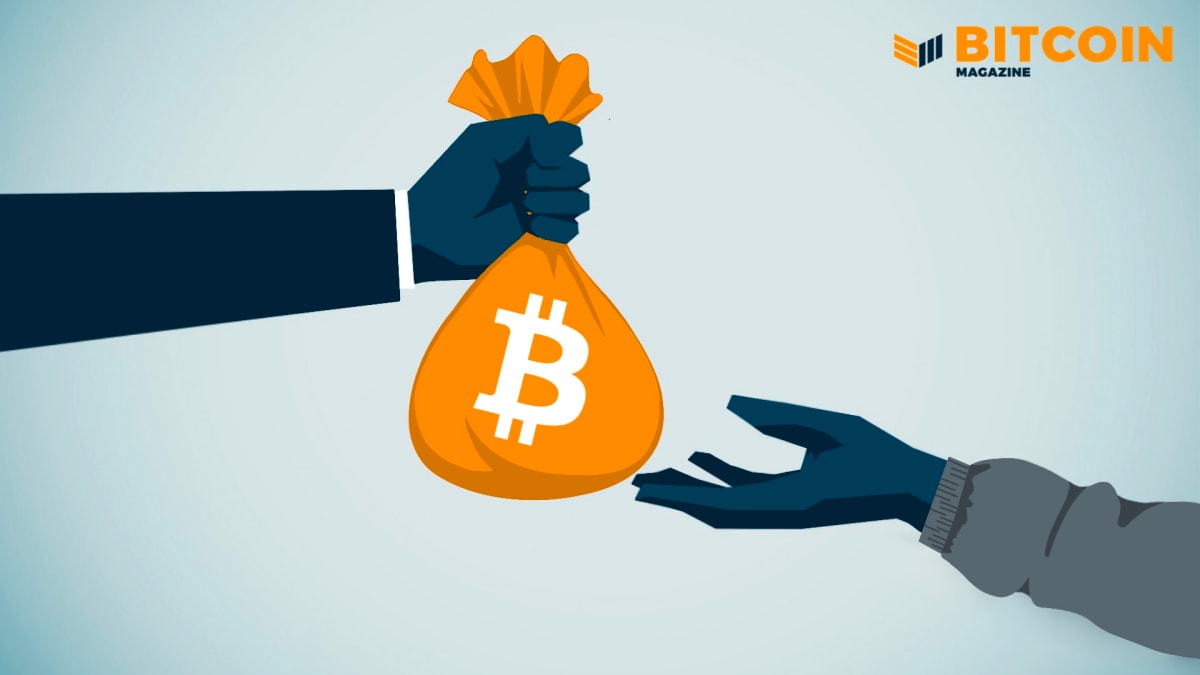2022-6-16 16:54 |
Bitcoin news and commentDon’t wait until it’s too late to take your bitcoin into self-custody, withdraw to a hardware wallet today.
News that the popular lending platform Celsius is preventing customer withdrawals and faces a liquidity crisis came as a shock to many this week. With millions of dollars worth of Bitcoin and Ethereum locked up in DeFi protocols, the sudden drop in the crypto market cap has left lenders unable to fulfill their promises, and they’re turning to desperate tactics to survive.
Celsius customers now face a complete loss of their deposits if the company goes insolvent. In a desperate attempt to prevent liquidation, they have even stopped users from taking out their money, possibly so they have collateral to prop up their bets on illiquid assets like staked ethereum.
While this is a terrible situation for those involved, this blog will cover how the rest can avoid falling for the same mistakes. As long as you have sole ownership of your keys, only you control your money.
Who owns your money?Centralized exchanges are convenient, but in most cases the price you pay is giving them full control of your funds. When you buy through Binance, Celsius, Coinbase, or other custodial exchanges, they are free to use your money as they wish. Until you withdraw to self-custody, there is no guarantee that they ever even hold the assets that you paid for, while they could be using your funds to buy high-risk assets or invest in sketchy protocols to try to turn a profit before you decide to withdraw.
Platforms offering double-digit returns on investments usually depend on one of two things: deposits from new customers being used to pay existing ones (also known as a Ponzi scheme), or by using customer funds to speculate on risky projects. As a crypto user, there is never a good reason to let someone else gamble with your money. If you want to take the risk, the beauty of crypto is that you are free to do so yourself without depending on a third-party.
How and why to withdraw your coins from exchanges
With your money in a hardware wallet, you always know where it is, how much you have, and who has access to it. A Trezor cannot freeze withdrawals, nor can it take your money and use it to profit. Best of all, it will never share information about your holdings with anyone else, not even us.
Nothing in the Trezor business model depends on anyone but you having control of your coins. The most important concept in Bitcoin is ownership, and with a Trezor only you have access to the keys that prove you own your money. If you are concerned about money you hold on an exchange, you should immediately withdraw your funds to safety.
How exchanges manipulate customersWhile Celsius is the hot story of the week, similar business tactics are used by dozens of exchanges and lenders. Not only are they using your money to fund reckless investments, but they also use their power to make trading more alluring and prevent you from ever truly owning your money by making it inconvenient to withdraw.
The biggest custodial crypto exchanges have been shown to use unethical and even illegal tactics to squeeze as much profit from their users as possible. This includes front-running customer orders, promoting worthless tokens and poorly-built protocols, and even imitating the fractional-reserve banking model to sell more bitcoin than they have. And when you’ve finally had enough, they charge high fees for the privilege of withdrawing to self-custody.
How to spot a bear market
The badly defined regulations directed at the crypto industry leave exchanges free to play psychological tricks on customers in order to encourage leverage trading, to lock funds on the exchange for long periods, and to extract as much profit as possible. Don’t expect accountability, especially not when things turn south.
Avoid the risks of custodial exchangesBitcoin was intended to be bought and sold from one person to another, as a peer-to-peer decentralized asset. As interest grew, centralized exchanges began springing up to connect buyers and sellers more easily. Nowadays, it can seem impossible to buy any cryptocurrency without needing to use an exchange, but that’s not the case.
Unless you want to use your money to gamble, there is no reason to depend on a centralized, custodial exchange that holds onto your money. You can still buy Bitcoin peer-to-peer, and there are tools that will connect you with a seller without needing to depend on a third party. There are also non-custodial exchanges which will send your funds direct to secure custody of your hardware wallet.
Buying bitcoin without KYC
To protect your privacy, it is recommended that you buy from a source that does not require you to provide any identity documents. Collection of personal data (KYC) is mandated in many countries, but exchanges are not given the tools to secure that data, meaning you risk losing highly sensitive personal data if there is a breach or bad actor. Furthermore, an authoritarian government could use the data to target you.
That’s why it’s best to buy bitcoin without KYC. You can either find a willing seller among your community, or you can use one of the open source tools available online, such as Bisq, HodlHodl, Robosats, and others. Check out our guide below to learn more.
Buy bitcoin without KYC
Buying bitcoin direct to secure custody
If a peer-to-peer purchase is too complicated, there are more convenient and safer alternatives that don’t rely on using a custodial exchange. Depending on how much you buy, you may not even need to provide any identity verification, making it a great choice for easy stacking. This can be done by buying Bitcoin or other cryptocurrencies instantly from your Trezor, using the in-app Trade menu.
By searching for an offer, you will be able to browse the best rate from a choice of non-custodial exchanges, and have your purchase sent directly to your Trezor. This negates the risk of your money being used by someone else, and avoids inflated withdrawal fees.
Compare crypto exchanges and buy bitcoin instantly with Trezor
Soon it will also be possible to set a savings plan that automatically makes purchases for you, so you can stack safely without ever wondering where your coins will end up.
Lessons learnedThis is not the first time an exchange has lost customer money and it will not be the last. There is only one way to avoid falling victim, and that is to keep your bitcoin where only you have access, like in a Trezor. Exchanges will promise you anything to get you to part with your bitcoin. Resist the temptation to gamble or trade, just hold onto your keys and focus on the long-term goals.
Trezor can’t pause bitcoin withdrawals even if we wanted to. As long as you keep your keys under control, you can do what you want with your bitcoin.Bitcoin was not created to make you rich. It was created to stop fiat monetary policy from making you poor. Holding bitcoin for the long term is a way to opt-out of the unprecedented inflation caused by money printing and huge macroeconomic shocks. By taking steps to keep it safe for a decade or more, you can protect your savings and potentially come out better off. Don’t let anyone take that away from you with their empty promises.
Who controls your Bitcoin? was originally published in Trezor Blog on Medium, where people are continuing the conversation by highlighting and responding to this story.
origin »Bitcoin price in Telegram @btc_price_every_hour
Know Your Developer (KYD) íà Currencies.ru
|
|
















